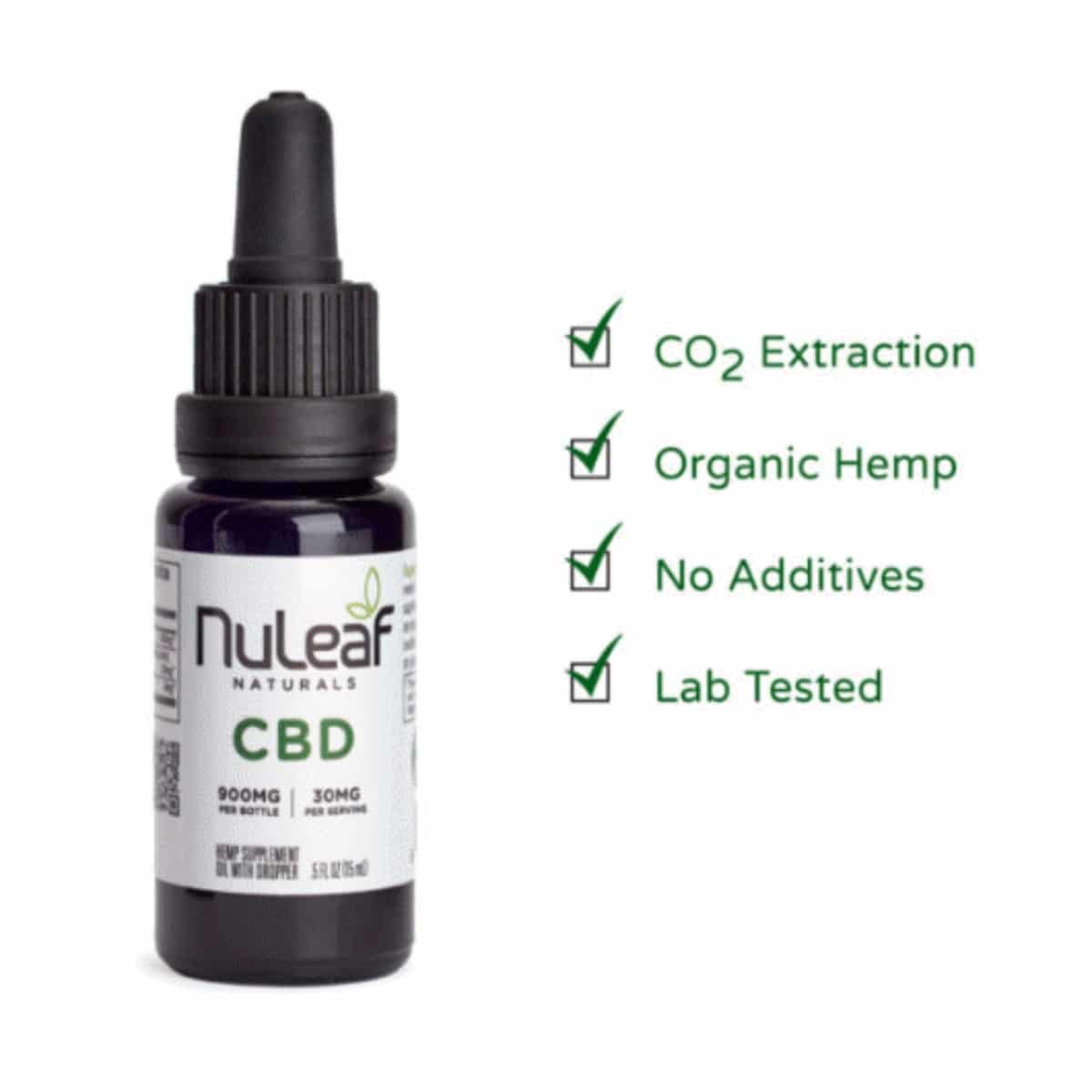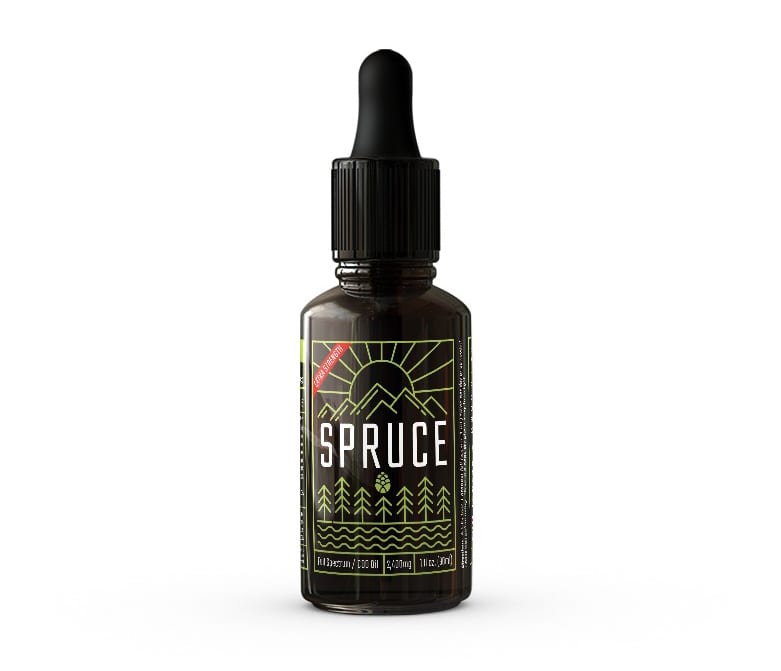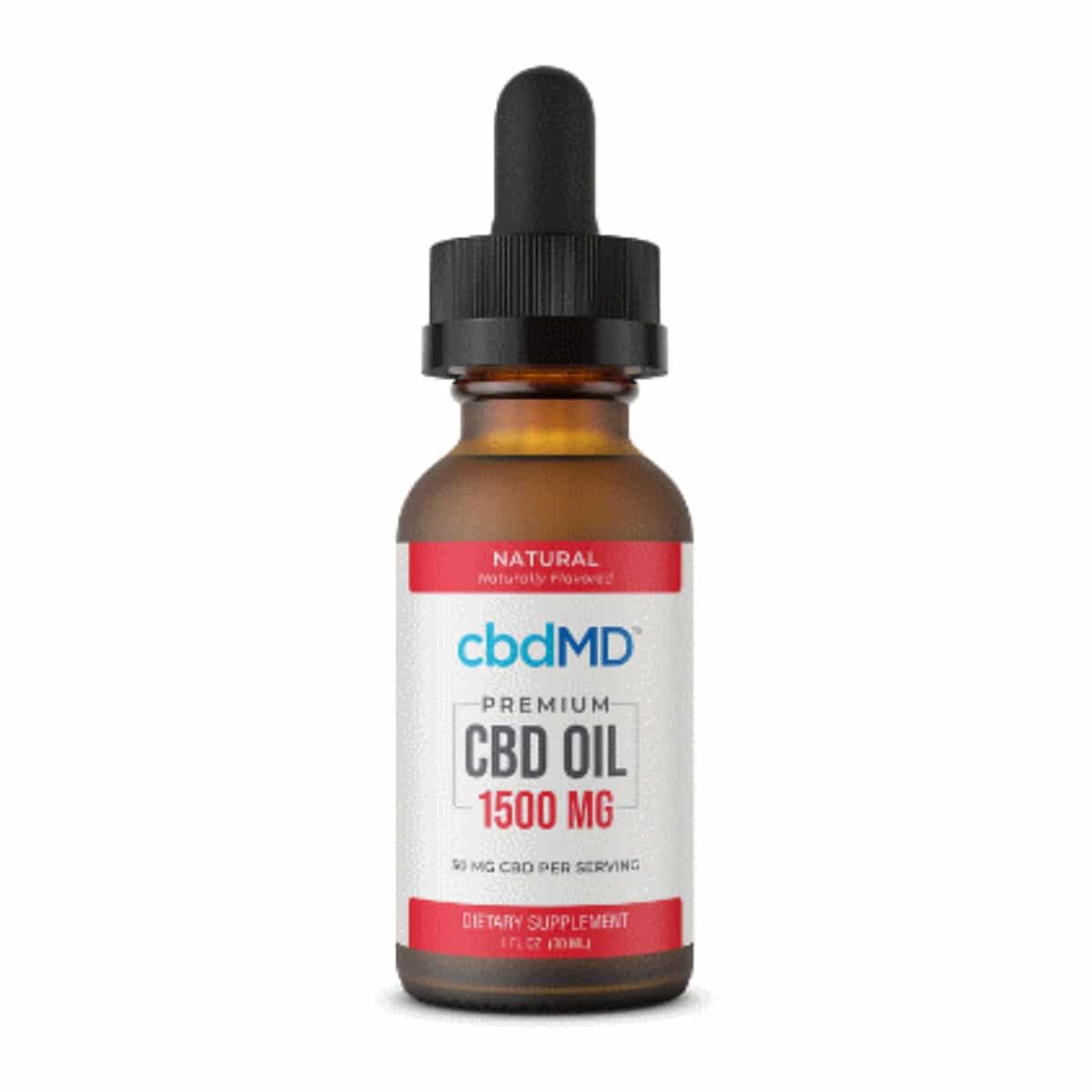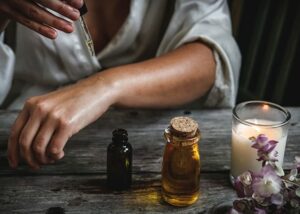Best CBD for Sleep Apnea
Are you searching for a sleep aid or natural alternative to managing sleep apnea? Read and find out more about CBD and its numerous benefits that may help you get better sleep.
Best CBD for Sleep Apnea 2025
- cbdMD CBD PM Sleep Aid Editor's Choice
- NuLeaf Naturals 900mg Full Spectrum Hemp CBD Oil Best Organic
- Spruce 2400mg Lab Grade CBD Oil Editor's Pick
- cbdMD CBD Oil Tincture Natural 1500mg Best Natural Alternative
- Sabaidee Pure Good Vibes CBD Oil Easy to use
Compare the Best CBD Oil for Sleep in 2022
Best CBD for Sleep Apnea
1. cbdMD CBD PM Sleep Aid
cbdc overall score
4.4
CBDC Evaluation Table/Score
| Pros | Cons |
|---|---|
|
Award-winning product |
cbdMD uses MCT as its carrier oil so individuals who are allergic with coconuts should consider other brand options |
|
Perfect nighttime companion |
May cause drowsiness. Not advisable for heavy machine operators |
|
Made from premium CBD from non-GMO USA hemp |
Overview
cbdMD’s CBD PM sleep aid combines the relaxing effects of CBD with the sleep-inducing qualities of melatonin and other natural ingredients. It helps consumers get a good night’s sleep. CBD PM is packaged with a rubber dropper and is applied sublingually. CBD PM is vegan and THC-free. It includes chamomile flower, cascade hops, and valerian root to help promote healthy sleep. These ingredients, combined with CBD and melatonin, help reduce tension and anxiety while preparing for bed. The product begins to take effect in about 30 minutes, making it perfect for taking just before lying down to sleep.
2. NuLeaf Naturals 900mg Full Spectrum Hemp CBD Oil
cbdc overall score
5.0
CBDC Evaluation Table/Score
| Pros | Cons |
|---|---|
|
Pure CBD hemp |
No other flavors |
|
All natural |
|
|
Approximately 300 drops total |
Overview
Natural remedy for various illnesses. NuLeaf Naturals’ CBD oil is a whole-plant extract containing a full spectrum of naturally occurring synergistic cannabinoids and terpenes.
3. Spruce 2400mg Lab Grade CBD Oil
cbdc overall score
5.0
CBDC Evaluation Table/Score
| Pros | Cons |
|---|---|
|
Extra Strength |
Tastes bitter |
|
No artificial flavoring or colors |
No THC-free option |
|
Made from 100% organic and natural ingredients |
Overview
The largest bottle of CBD oil that Spruce offers contains 2,400mg of CBD. This is full-spectrum CBD oil, which is the maximum possible potency. Each high potency dropper full contains 80mg of CBD. There are no flavorings in it, which allows for the most CBD to fit in the 30ml bottle.
4. cbdMD CBD Oil Tincture Natural 1500mg
cbdc overall score
4.7
CBDC Evaluation Table/Score
| Pros | Cons |
|---|---|
|
Various delicious flavors to choose from |
cbdMD uses MCT as its carrier oil so individuals who are allergic with coconuts should consider other brand options |
|
Has vegan, organic, and gluten-free ingredients |
|
|
Free shipping for this particular product within USA |
|
|
World-class customer service team |
Overview
cbdMD’s CBD oil tinctures are made using only CBD sourced from medical hemp and MCT oil as a carrier oil. Tinctures are offered in orange, mint, natural, and berry flavors. Safe for daily use, the oil tinctures are packaged with a built-in rubber dropper to adjust CBD dosage easily. The packaging is made to be easy to transport and discreet to use.
5. Sabaidee Pure Good Vibes CBD Oil
cbdc overall score
4.4
CBDC Evaluation Table/Score
| Pros | Cons |
|---|---|
|
Significant benefits with just a few drops |
A little bit pricey compared to other brand of same specs |
|
100% Natural ingredients |
|
|
You can add this tincture to beverages like coffee, juice and or tea without bringing the minty flavor along. |
Overview
Pure Good Vibes is a natural and flavorless 1000mg broad-spectrum CBD tincture. Each dropper contains over 33.5mg of our high quality and broad-spectrum CBD oil, and many users report benefits with just a few drops.
How CBD May Help With Sleep Apnea
Sleep apnea, sometimes called obstructive sleep apnea (OSA), is defined as a sleep disorder in which an individual’s breathing is repeatedly interrupted while they are asleep(1).
The disorder causes symptoms like insomnia, daytime drowsiness, headaches, and snoring.
Based on a 2018 study, cannabidiol (CBD) may have properties beneficial to individuals suffering from sleep disorders(2).
Additionally, a 2020 clinical study has suggested that cannabinoids such as tetrahydrocannabinol (THC) and cannabidiol (CBD) may help in managing sleep disorders(3).
CBD and THC may interact with the endocannabinoid system (ECS)(4). This interaction may influence anxiety, mood, and the body’s circadian rhythm.
The circadian rhythm, also called the circadian cycle, is a natural and biological process that regulates the sleep-wake cycle(5).
Sleep disorders may result from a disturbance of the circadian rhythm(6).
Aside from the ECS, cannabinoids may also interact with the cannabinoid receptors CB1 and CB2.
The activation of CB1 receptors is hypothesized to impact sleep regulation and sleep cycle(7). An animal study noted that the interaction between cannabinoids and CB1 receptors affects the hamsters’ circadian rhythms(8).
There is no current clinical research on the effects of cannabidiol on sleep apnea. However, studies have indicated that CBD may potentially reduce symptoms and complications that may result from the medical condition, such as insomnia(9).
Benefits of Using CBD for Sleep Apnea
A study on cannabis and insomnia has indicated that the use of cannabidiol (CBD) may have possible therapeutic benefits for insomnia(10).
The same study also suggested that CBD has a possibly beneficial effect on REM (rapid eye movement) sleep behavior disorder and excessive daytime sleepiness(11).
REM sleep is when brain activity is at its peak. During REM sleep, the brain exercises essential neural connections that enhance an individual’s mental health and overall well-being(12).
Insomnia or difficulty staying asleep and hypersomnia or excessive daytime sleepiness are symptoms commonly associated with sleep apnea(13).
A study in 2019 discussed CBD’s calming effects on the central nervous system. Individuals suffering from anxiety and sleep problems were given 25 milligrams (mg) of CBD capsules. Results indicated that individuals experienced improved sleep and reduced anxiety(14).
Another study stated that participants reported better quality sleep after taking 160 milligrams of CBD compared to individuals who took a placebo, or a drug with no therapeutic effect(15).
Another common symptom of obstructive sleep apnea is anxiety and depression(16).
A study has stated that CBD may significantly regulate anxiety- and depressive-related behaviors of animal models(17).
The administration of CBD may result in reduced anxiety, depression, and stress-related behaviors.
The research suggests that CBD may provide therapeutic benefits for dealing with anxiety, depression, schizophrenia, and related psychotic disorders(18).
The mentioned animal studies on the benefits of cannabidiol may sound promising. However, future research on the effects of CBD on humans is warranted.
The American Migraine Foundation stated that individuals with sleep apnea also experience headaches related to the disorder.
Individuals are woken up by these headaches, resulting in feelings of tiredness and unrest despite having a whole good night’s sleep(19).
Obstructive sleep apnea also occurs more often in individuals who suffer from nightly nasal congestions due to narrowed airways(20).
Mucosal inflammation may be responsible for the numerous distinct and interrelated factors that lead to congestion and increased nasal secretions(21).
Meanwhile, recent studies have shown that CBD may contain anti-inflammatory properties(22).
Thus, CBD may have the potential to help with nasal congestion, a condition that may cause a higher risk of developing sleep apnea(23).
Overweight individuals also have a higher risk of suffering from sleep apnea due to the excess fats around the upper airway obstructing the individual’s breathing(24).
A study in 2020 hypothesized that CBD may have potential anti-obesity properties due to the way the compound affects lipid (fat) and glucose (sugar) metabolism through the interaction with various cannabinoid receptors(25).
Despite that, the American Academy of Sleep Medicine (AASM) strongly opposes the use of medical cannabis and cannabinoids in dealing with obstructive sleep apnea.
The AASM stated that the objection was due to the clinical trials and research on CBD and obstructive sleep apnea having insufficient evidence and unreliable delivery methods(26).
Individuals with sleep apnea are strongly advised to consult with their physician or any authorized sleep facility before taking CBD for their medical condition.
How to Take CBD for Sleep Apnea
CBD comes in varied forms, such as CBD tinctures, edibles, like CBD gummies, topicals, and vapes. The effectiveness of CBD may depend on the individual’s weight, metabolism, and diet.
CBD Edibles
Edibles such as CBD gummies work by allowing the compound to pass through your gastrointestinal tract before it enters your bloodstream.
This method may offer a convenient way to consume CBD for symptoms of sleep apnea, such as insomnia, as CBD edibles’ effects may last all night(27).
CBD Tinctures
CBD tinctures or CBD oil are made by infusing cannabis into carrier oils, like olive oils, coconut oil, and MCT oil(28).
Tinctures are then applied sublingually or directly under the tongue. You should wait for one to two minutes before swallowing(29).
CBD Vapes
CBD may also be inhaled using vape pens. It is the fastest way to feel the benefits of the compound.
The vapor goes straight from your lungs into the bloodstream(30).
However, smoking and vaping have been linked to the development of severe lung diseases, so caution is advised(31).
CBD Topicals
CBD topicals, like lotions and CBD creams, are applied to the desired area on the skin for localized relief of minor or chronic pains(32), such as headaches caused by sleep apnea.
Dosage
The Food and Drug Administration or FDA does not recognize CBD as a form of medical treatment for sleep illnesses such as sleep apnea(33).
Therefore, there is no set dosage for CBD or any CBD product.
Generally, individuals should begin by taking a low dose of CBD then gradually increase to higher doses if there are no substantial side effects.
According to a study from Current Drug Safety, doses from around 1mg to 1,500 mg of CBD per day are tolerated well by humans(34).
Nonetheless, you should discuss with your doctor the best CBD dosage for your medical condition.
How Long Does CBD Take to Help Sleep Apnea?
The CBD form, dosage, and administration method may determine how long it takes for CBD products to affect the system.
CBD tinctures, administered sublingually (under the tongue) using a dropper before swallowing, may require around 15 to 30 minutes before taking effect(35).
Edibles such as CBD gummies and pills may take effect within 30 to 90 minutes after ingestion(36).
CBD may also be inhaled through smoking or vaping, which is the fastest method of feeling the effects of CBD, taking around 2 to 15 minutes(37).
Note that vaping may cause potential health risks like severe pulmonary diseases(38), so caution is advised.
Meanwhile, CBD topicals, such as creams and balms, are applied to the skin for localized pain relief. These products may require 10 to 15 minutes before CBD takes effect(39).
You should consult a medical professional before using any CBD products for sleep apnea.
How Long Will CBD Help With Sleep Apnea?
There are no official studies on how long the effects of CBD may last in your system to help with sleep apnea.
The compound’s effects may remain in the system depending on the dosage of CBD, the frequency of its consumption, and the method of administration(40).
How to Choose the Right CBD for Sleep Apnea
You should take of note these factors when choosing the best CBD oil for sleep apnea:
CBD Extracts
CBD extracts are categorized into three types: full-spectrum CBD oil, broad-spectrum CBD, and CBD isolates.
Full-spectrum CBD oil contains all the extracts of cannabis plants, including flavonoids, terpenes, and cannabinoids. This type also has less than 0.3% THC concentration(41).
Flavonoids give antioxidant properties to plant compounds, whereas terpenes provide a unique fragrance to plants.
Broad-spectrum CBD oil has almost the same contents as full-spectrum CBD oil. The only difference is that broad-spectrum CBD oil has only a small amount of THC or is entirely THC-free.
Lastly, CBD isolates are pure form cannabidiol usually extracted from Cannabis sativa.
Hemp Source
A CBD product with an unverified hemp source may contain harmful contaminants, such as pesticides, heavy metals, or genetically modified organisms (GMOs), that pose a considerable health risk when ingested.
Therefore choosing non-GMO CBD products or organic hemp manufactured and produced by trusted CBD brands is vital.
Colorado and Los Angeles are some states that have a large market for CBD products and medical marijuana.
Carrier Oils
After being extracted from the hemp plant, cannabidiol or hemp extracts are infused into carrier oils, like coconut, hemp seed, or MCT oil.
The oils contained in CBD oil products have fatty acids and a moisturizing effect.
Third-Party Lab Testing
CBD brands should undergo a thorough evaluation through third-party lab testing.
These tests examine the product for pesticides and heavy metals that may be harmful to consumers.
Trusted CBD companies that produce high-quality CBD products provide certificates of analysis (COA) on their websites.
COAs are third-party lab results that show the CBD product’s actual content.
CBD and Safety for Sleep Apnea
Currently, the Food and Drug Administration (FDA) has not approved CBD to treat sleep apnea.
However, a World Health Organization (WHO) report states that CBD is safe and well tolerated by the body(42).
Still, if you experience sleep apnea symptoms or any related medical conditions, it is best to seek advice from a licensed medical professional first.
Risks and Side Effects of Using CBD for Sleep Apnea
CBD may contain a grapefruit warning. Thus, the effects of the following medications may be hindered by the use of CBD(43).
- Antibiotics
- Pain medications
- Blood pressure medications
- Cholesterol medications
The interaction between the grapefruit and medication may vary in severity, depending on the drugs’ composition, amount of grapefruit consumed, and an individual’s health condition(44).
Legality of CBD
The only FDA-approved cannabis-derived medication is Epidiolex.
It is a prescription drug for treating seizures associated with two rare forms of childhood epilepsy and tuberous sclerosis complex (TSC)(45).
The 2018 Farm Bill states that CBD products that contain less than 0.3% THC are federally legal in the United States(46).
Before purchasing CBD products with THC, you should check your state laws if they are allowed.
Product Frequently
Asked Questions
-
How can CBD help with sleep apnea?
Disturbances in the circadian rhythm may cause sleep disorders like sleep apnea(47). CDB and THC interact with the endocannabinoid system, which may influence anxiety, mood, and the body’s circadian rhythm(48).
Activating CB1 receptors is also hypothesized to regulate sleep(49). According to an animal study, the interaction between cannabinoids and CB1 receptors had an impact on the circadian rhythm of hamsters(50).
-
What evidence or research exists to say that CBD helps with sleep apnea?
A study has hypothesized that CBD may have therapeutic effects in dealing with insomnia, excessive daytime sleepiness, and REM sleep behavior disorder(51).
Difficulty staying asleep or insomnia and excessive daytime sleepiness or hypersomnia are common sleep apnea symptoms(52).
There are no specific clinical studies on whether CBD can be used for sleep apnea. However, research has discussed CBD’s potential benefits to reduce symptoms and complications that may result from sleep apnea.
-
Is there any evidence that CBD can make sleep apnea worse?
No current evidence has indicated that CBD can make sleep apnea worse.
CBD is safe, well tolerated by the body, and does not cause addiction, according to the WHO(53)-(54).
Still, it is best to use CBD products if it is advised by a doctor.
-
Will CBD interact with any current medication I may be taking for sleep apnea?
CBD products may have a grapefruit warning which may hinder the efficacy of some medications taken with sleep apnea, such as blood pressure and pain medicines(55).
Before taking CBD with these medications, talk to your doctor first.
-
Are there other treatments I should consider alongside CBD to help with sleep apnea?
Mild cases of sleep apnea can be fixed or treated with minor lifestyle changes, like quitting smoking and losing weight(56).
However, for moderate and severe cases of sleep apnea, doctors may recommend surgery or the use of certain devices to open up the blocked airways.
-
Can I fail a drug test if I use CBD for sleep apnea?
CBD is a non-psychoactive compound. Therefore, it will not cause a euphoric high(57-58).
However, most CBD products contain trace amounts of THC, which may build up in the body if taken frequently over time and potentially cause a positive drug test(59).
-
What is the dosage for sleep apnea?
CBD is not a medical treatment for any illnesses, according to the FDA(60). Therefore, there is no set dosage when taking CBD.
Generally, you must start with only low doses of CBD then gradually increase to high doses if you do not feel any significant side effects(61).
Nonetheless, it is still best to talk to your physician about the optimal CBD dosage for your condition.
-
Is CBD legal for sleep apnea?
Due to the 2018 Farm Bill, CBD products with 0.3% or less THC are federally legal in the United States(62).
Verify your state laws and product labels before purchasing any CBD products. .
-
Is CBD safe for sleep apnea?
Generally, CBD is safe, well tolerated by the body(63), and non-addictive(64).
However, due to the lack of clinical research on CBD and sleep apnea, the (AASM) strongly objects to using cannabinoids and medical cannabis in dealing with obstructive sleep apnea(65).
Consult your physician first if you plan to use CBD for your medical condition.
- Sleep Apnea
https://my.clevelandclinic.org/health/diseases/8718-sleep-apnea - Translational Investigation of the Therapeutic Potential of Cannabidiol (CBD): Toward a New Age
https://www.frontiersin.org/articles/10.3389/fimmu.2018.02009/full - Cannabinoid therapies in the management of sleep disorders: A systematic review of preclinical and clinical studies
https://www.sciencedirect.com/science/article/abs/pii/S1087079220300824 - Cannabinoid therapies in the management of sleep disorders: A systematic review of preclinical and clinical studies
https://doi.org/10.1016/j.smrv.2020.101339 - Circadian Rhythms
https://www.nigms.nih.gov/education/fact-sheets/Pages/circadian-rhythms.aspx - Circadian Rhythm Sleep Disorders
https://www.ncbi.nlm.nih.gov/pmc/articles/PMC3523094/ - The role of the CB1 receptor in the regulation of sleep
https://pubmed.ncbi.nlm.nih.gov/18514375/ - Cannabinoids and hamster circadian activity rhythms
https://doi.org/10.1016/j.brainres.2008.05.048 - Cannabis, Cannabinoids, and Sleep: a Review of the Literature
https://pubmed.ncbi.nlm.nih.gov/28349316/ - Cannabis, Cannabinoids, and Sleep: a Review of the Literature
https://pubmed.ncbi.nlm.nih.gov/28349316/ - ibid.
- 3 Things You Should Know About REM Sleep
https://valleysleepcenter.com/3-things-you-should-know-about-rem-sleep/ - Sleep apnea
https://www.mayoclinic.org/diseases-conditions/sleep-apnea/symptoms-causes/syc-20377631 - Cannabidiol in Anxiety and Sleep: A Large Case Series
https://www.ncbi.nlm.nih.gov/pmc/articles/PMC6326553/ - Hypnotic and antiepileptic effects of cannabidiol
https://pubmed.ncbi.nlm.nih.gov/7028792/ - Sleep Apnea
https://my.clevelandclinic.org/health/diseases/8718-sleep-apnea - Cannabidiol: A Potential New Alternative for the Treatment of Anxiety, Depression, and Psychotic Disorders
https://www.ncbi.nlm.nih.gov/pmc/articles/PMC7699613/ - ibid.
- Sleep Disorders and Headache
https://americanmigrainefoundation.org/resource-library/sleep/ - Obstructive sleep apnea
https://www.mayoclinic.org/diseases-conditions/obstructive-sleep-apnea/symptoms-causes/ - Pathophysiology of nasal congestion
https://www.ncbi.nlm.nih.gov/pmc/articles/PMC2866558/ - Antioxidative and Anti-Inflammatory Properties of Cannabidiol
https://www.ncbi.nlm.nih.gov/pmc/articles/PMC7023045/ - Obstructive sleep apnea
https://www.mayoclinic.org/diseases-conditions/obstructive-sleep-apnea/symptoms-causes/syc-20352090 - Obstructive sleep apnea
https://www.mayoclinic.org/diseases-conditions/obstructive-sleep-apnea/symptoms-causes/ - Phytocannabinoids: Useful drugs for the treatment of obesity? Special focus on cannabidiol
https://dx.doi.org/10.3389%2Ffendo.2020.00114 - Position statement: Avoid using medical marijuana to treat sleep apnea
https://aasm.org/medical-marijuana-position-statement/ - Healing with CBD. page 202. https://drive.google.com/file/d/1AGlxnhS2SoFeOXEuysv75bd_C9pEnwsU/view
- Healing with CBD page 205
https://drive.google.com/file/d/1AGlxnhS2SoFeOXEuysv75bd_C9pEnwsU/view - CBD for Arthritis Pain: What You Should Know
https://www.arthritis.org/health-wellness/healthy-living/managing-pain/pain-relief-solutions/cbd-for-arthritis-pain - Best way to take CBD
https://www.projectcbd.org/guidance/best-way-take-cbd - Outbreak of Lung Injury Associated with the Use of E-Cigarette, or Vaping, Products
https://www.cdc.gov/tobacco/basic_information/e-cigarettes/severe-lung-disease.html - Healing with CBD. page. 210.
https://drive.google.com/file/d/1AGlxnhS2SoFeOXEuysv75bd_C9pEnwsU/view - FDA Regulation of Cannabis and Cannabis-Derived Products, Including Cannabidiol (CBD)
https://www.fda.gov/news-events/public-health-focus/fda-regulation-cannabis-and-cannabis-derived-products-including-cannabidiol-cbd - Safety and side effects of cannabidiol, a Cannabis sativa constituent
https://pubmed.ncbi.nlm.nih.gov/22129319/ - Healing with CBD. page. 192.
https://drive.google.com/file/d/1AGlxnhS2SoFeOXEuysv75bd_C9pEnwsU/view - ibid. page. 191
- ibid. page. 197
- Can vaping damage your lungs? What we do (and don’t) know
https://www.health.harvard.edu/blog/can-vaping-damage-your-lungs-what-we-do-and-dont-know-2019090417734 - Healing With CBD. page. 210
https://drive.google.com/file/d/1AGlxnhS2SoFeOXEuysv75bd_C9pEnwsU/view - Healing with CBD. page. 195.
https://drive.google.com/file/d/1AGlxnhS2SoFeOXEuysv75bd_C9pEnwsU/view - Cannabidiol Primer for Healthcare Professionals
https://www.ncbi.nlm.nih.gov/pmc/articles/PMC7340472/ - Cannabinoid (CBD) Pre-Review Report, page 14.
https://www.who.int/medicines/access/controlled-substances/5.2_CBD.pdf - Potential Adverse Drug Events and Drug–Drug Interactions with Medical and Consumer Cannabidiol (CBD) Use
https://www.ncbi.nlm.nih.gov/pmc/articles/PMC6678684/ - Grapefruit Juice and Some Drugs Don’t Mix
https://www.fda.gov/consumers/consumer-updates/grapefruit-juice-and-some-drugs-dont-mix - FDA Approves New Indication for Drug Containing an Active Ingredient Derived from Cannabis to Treat Seizures in Rare Genetic Disease
https://www.fda.gov/news-events/press-announcements/fda-approves-new-indication-drug-containing-active-ingredient-derived-cannabis-treat-seizures-rare - FDA Regulation of Cannabis and Cannabis-Derived Products, Including Cannabidiol (CBD)
https://www.fda.gov/news-events/public-health-focus/fda-regulation-cannabis-and-cannabis-derived-products-including-cannabidiol-cbd - Circadian Rhythm Sleep Disorders
https://www.ncbi.nlm.nih.gov/pmc/articles/PMC3523094/ - Cannabinoid therapies in the management of sleep disorders: A systematic review of preclinical and clinical studies
https://doi.org/10.1016/j.smrv.2020.101339 - The role of the CB1 receptor in the regulation of sleep
https://pubmed.ncbi.nlm.nih.gov/18514375/ - Cannabinoids and hamster circadian activity rhythms
https://doi.org/10.1016/j.brainres.2008.05.048 - Cannabis, Cannabinoids, and Sleep: a Review of the Literature
https://pubmed.ncbi.nlm.nih.gov/28349316/ - Sleep apnea
https://www.mayoclinic.org/diseases-conditions/sleep-apnea/symptoms-causes/syc-20377631 - Cannabinoid (CBD) Pre-Review Report, page 14.
https://www.who.int/medicines/access/controlled-substances/5.2_CBD.pdf - Cannabidiol (CBD), page 5.
https://www.who.int/medicines/access/controlled-substances/CannabidiolCriticalReview.pdf - Potential Adverse Drug Events and Drug–Drug Interactions with Medical and Consumer Cannabidiol (CBD) Use
https://www.ncbi.nlm.nih.gov/pmc/articles/PMC6678684/ - Sleep Apnea
https://www.mayoclinic.org/diseases-conditions/sleep-apnea/diagnosis-treatment/drc-20377636 - Cannabidiol and Other Non-Psychoactive Cannabinoids for Prevention and Treatment of Gastrointestinal Disorders: Useful Nutraceuticals?
https://www.ncbi.nlm.nih.gov/pmc/articles/PMC7246936/ - Cannabidiol (CBD)-what we know and what we don’t
https://www.health.harvard.edu/blog/cannabidiol-cbd-what-we-know-and-what-we-dont-2018082414476 - Can You Take CBD and Pass a Drug Test?
https://www.consumerreports.org/cbd/can-you-take-cbd-and-pass-a-drug-test/ - FDA Regulation of Cannabis and Cannabis-Derived Products, Including Cannabidiol (CBD)
https://www.fda.gov/news-events/public-health-focus/fda-regulation-cannabis-and-cannabis-derived-products-including-cannabidiol-cbd - CBD dosing
https://www.projectcbd.org/guidance/cbd-dosing - Hemp Production and the 2018 Farm Bill
https://www.fda.gov/news-events/congressional-testimony/hemp-production-and-2018-farm-bill-07252019 - Cannabidiol (CBD), page 5.
https://www.who.int/medicines/access/controlled-substances/CannabidiolCriticalReview.pdf - Cannabinoid (CBD) Pre-Review Report, page 14.
https://www.who.int/medicines/access/controlled-substances/5.2_CBD.pdf - Position statement: Avoid using medical marijuana to treat sleep apnea
https://aasm.org/medical-marijuana-position-statement/











